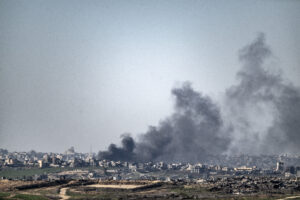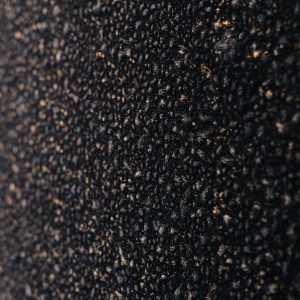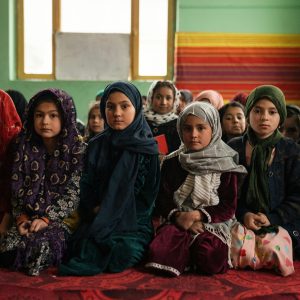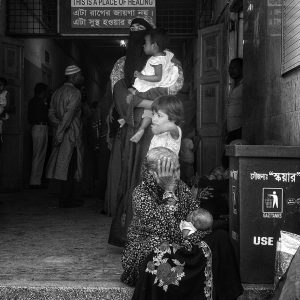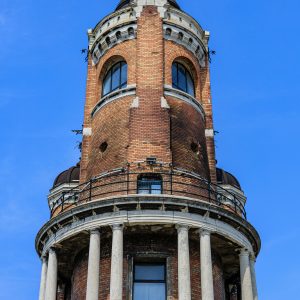Indian premier set to unveil economic projects during key Kashmir visit
SRINAGAR, Jammu and Kashmir (AA) – Indian Prime Minister Narendra Modi is set to visit Jammu and Kashmir on Sunday for the second time since the disputed region’s autonomous status was scrapped by his government on Aug. 5, 2019.
He is scheduled to launch power and other projects valued at nearly $5 billion from a village in the Samba district of the Hindu-majority Jammu province, a traditional stronghold of the Hindu right, making this trip the most significant since the Aug. 5 decision.
Modi’s visit in November last year — to celebrate the Hindu festival Diwali with Indian soldiers stationed at the country’s borders — was low-key in comparison.
An official advertisement in local Kashmiri newspapers on Saturday said that the government had received investment proposals worth $6.7 billion. At Sunday’s ceremony, the groundbreaking of $5 billion worth of projects will be carried out, with the potential to generate 237,000 jobs, it said.
Since assuming power in New Delhi in 2014, Modi has visited the region as many as 20 times — the most visits by any Indian premier to the region, where a freedom struggle has been going on for more than 30 years.
Modi has scrapped the laws that allowed Jammu and Kashmir to have a separate constitution, flag, and legislature that could make laws independently of the Indian parliament.
Another law that empowered the local government was its mandate to define permanent state residents, preventing outsiders from buying property or taking government jobs, which was also scrapped on Aug. 5, raising fears among Muslims — 68.5% of the population — that they would be reduced to a minority.
The state was also bifurcated and downgraded into two federally-ruled territories: Ladakh, which is claimed by China, and Jammu and Kashmir, whose population wants freedom to join Pakistan.
Statehood status
The Indian government has repeatedly said statehood would be restored to Jammu and Kashmir after an ongoing delimitation exercise is completed and elections are held for a new assembly.
Pro-India Muslim politicians, who have been another casualty of the lost political order, have criticized the delimitation exercise as an attempt to provide an electoral advantage to Jammu province by disproportionately increasing its seats in the legislative assembly.
The delimitation is supposed to be completed by early May. India’s Home Minister Amit Shah, who is the BJP’s key election strategist, is expected to visit the region soon after Modi, on May 8.
India’s ruling Hindu rightwing has blamed the special political status of Jammu and Kashmir for the economic backwardness of the region, though pro-India politicians like Omar Abdullah, former chief minister of the region and India’s one-time junior foreign minister, have contested these assertions using data from public agencies.
Economic development and the use of iron-fisted policies against freedom fighters, analysts say, are the twin strategies New Delhi is keen to pursue in Kashmir post-2019 for its complete merger into the Indian Union.
Projects Modi is scheduled to unveil are in the sectors of hospitality, housing, industry, warehousing, and film and entertainment besides a “Medicity” with a capacity of 6,000 hospital beds.
Key sectors to be developed, according to the advertisement, are food processing, health, services, cement and minerals, and IT and electronics.
‘Militancy down’
Modi’s visit comes at a time when fresh recruitments into militant groups is decreasing, says Lt. Gen. DP Pandey, the commander of the Indian army’s Kashmir-based 15 Corps.
“Last year, it was down as well and this year, it has further come down as the people have realized that militancy has only brought misery to them,” Pandey claims.
Kashmir Range Inspector General of Police Vijay Kumar also told the media recently that the number of freedom fighters was down below 200 for the first time.
Ahead of Modi’s visit, two freedom fighters and an officer of the Central Industrial Security Force were killed in a military operation in the Jammu region, while five other personnel were injured on Friday.
Dilbagh Singh, police chief of Jammu and Kashmir, told reporters that those who died belonged to the Pakistan-based outfit Jaish-e-Muhammad. He said the attack was “part of a larger conspiracy to disturb peace in Jammu and sabotage the prime minister’s visit to the region.”


